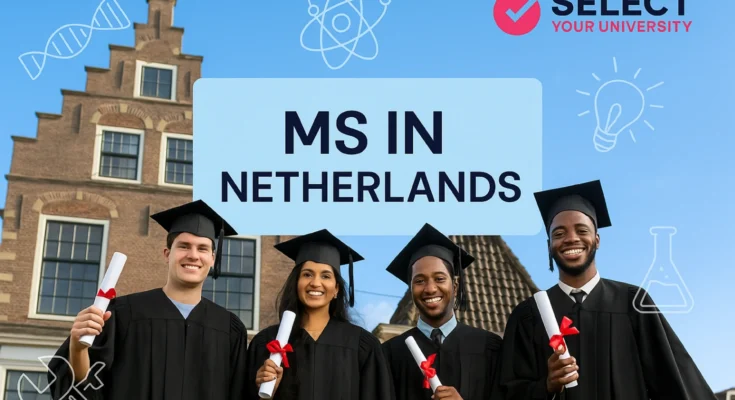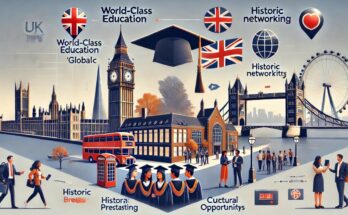Universities Prepare Students for a Global Career The Netherlands, a global hub for innovation and education, has established itself as a premier destination for students aiming to build successful international careers. Dutch universities combine academic excellence, innovative teaching methods, and a multicultural environment to equip students with the skills, networks, and perspectives needed to thrive in a globalized world. With a strong emphasis on practical experience, industry connections, and cultural adaptability, institutions like Delft University of Technology, University of Amsterdam, and Eindhoven University of Technology prepare graduates for diverse roles across industries. This article explores how Dutch universities foster global career readiness through their unique educational approaches, international focus, and robust support systems.
A World-Class Education System Tailored for Global Impact
Dutch universities are renowned for their high academic standards, with several institutions ranking among the top 100 globally (QS World University Rankings 2025). The country offers over 2,100 English-taught programs, making education accessible to international students from over 200 nationalities. This global orientation is a cornerstone of Dutch higher education, ensuring graduates are prepared for careers that transcend borders.
Research Universities and Universities of Applied Sciences
The Dutch higher education system is divided into two types of institutions, each designed to prepare students for distinct career paths:
- Research Universities: Institutions like the University of Amsterdam (UvA), Delft University of Technology (TU Delft), and Utrecht University focus on theoretical and research-driven education. Programs in fields like AI, engineering, and social sciences emphasize critical thinking and innovation, ideal for careers in academia, research, or specialized industries.
- Universities of Applied Sciences: Institutions such as Hogeschool van Amsterdam and Hanze University offer practical, career-oriented programs in business, design, and hospitality. These programs include internships and industry projects, ensuring immediate employability in global markets.
The diversity of programs allows students to tailor their education to their career goals, whether they aspire to be tech innovators, policy analysts, or business leaders.
Problem-Based Learning (PBL)
Dutch universities employ problem-based learning, a student-centered approach that encourages collaboration, critical analysis, and real-world problem-solving. For example, TU Delft’s aerospace engineering students work on simulations for satellite design, while UvA’s international relations students analyze global policy challenges. This method fosters skills like adaptability, teamwork, and creative thinking—qualities highly valued by global employers. According to a 2024 Nuffic survey, 85% of international graduates from Dutch universities reported that PBL enhanced their employability.
Global Orientation Through Multicultural Campuses
The Netherlands’ multicultural society, with a population representing over 200 nationalities, creates a dynamic learning environment. Universities like UvA (32,000 students, 20% international) and Erasmus University Rotterdam attract diverse cohorts, fostering cross-cultural collaboration. This exposure prepares students to work in global teams, a critical skill in industries like tech, finance, and international development.
English-Taught Programs
With 95% of the Dutch population proficient in English (EF English Proficiency Index 2024), the Netherlands is a leader in English-taught education. Programs like TU/e’s Master’s in Data Science and VU Amsterdam’s Bachelor’s in International Business Administration are delivered in English, ensuring students from non-Dutch-speaking backgrounds can fully engage. This linguistic accessibility equips graduates to communicate effectively in global workplaces, where English is often the lingua franca.
International Partnerships and Exchanges
Dutch universities maintain extensive partnerships with institutions and companies worldwide, enhancing global career prospects. For instance, TU Delft collaborates with MIT and ETH Zurich on engineering research, while Wageningen University partners with global organizations like the FAO on sustainable agriculture. Programs like Erasmus+ facilitate student exchanges, allowing students to study in countries like Germany, Spain, or the UK, building international networks. These experiences broaden perspectives and enhance resumes, with 70% of Erasmus+ participants reporting improved career outcomes (European Commission, 2024).
Industry Connections and Practical Experience
Dutch universities prioritize industry engagement, ensuring students gain practical skills that align with global market demands.
Internships and Industry Projects
Universities of applied sciences integrate mandatory internships into their curricula, while research universities often include industry-driven projects. For example, TU/e’s partnerships with ASML and Philips in Eindhoven provide students with internships in semiconductor technology and healthcare innovation. Similarly, Rotterdam School of Management (part of Erasmus University) connects students with multinational corporations like Unilever for real-world business challenges. These experiences bridge the gap between academia and industry, with 80% of Dutch graduates securing jobs within six months of graduation (Nuffic, 2024).
Innovation Hubs and Startup Ecosystems
The Netherlands ranks third globally for startup financing, and its universities foster entrepreneurial skills through innovation hubs. TU Delft’s TU/e Innovation Space supports student startups, while the University of Twente’s F&A NEXT Summit connects students with investors in food and agriculture. These initiatives encourage students to develop entrepreneurial mindsets, preparing them for roles as innovators or business leaders in global markets.
Career Services and Networking
Dutch universities offer robust career services, including resume workshops, job fairs, and alumni networks. UvA’s Career Centre hosts events with companies like Deloitte and Google, while TU Delft’s Career Platform connects students with tech firms. Alumni networks, spanning countries like the US, China, and India, provide global networking opportunities, helping graduates secure roles in diverse regions.
Cultural Adaptability and Soft Skills
Global careers require cultural fluency and adaptability, qualities Dutch universities cultivate through their inclusive environments and student life.
Multicultural Exposure

Campuses like those of VU Amsterdam and Leiden University host students from Asia, Africa, Europe, and beyond, fostering intercultural competence. Group projects and student associations, such as ESN, encourage collaboration across cultures. For example, Wageningen University’s international student community works on projects addressing global food security, preparing students to navigate diverse professional settings.
Dutch Directness and Communication Skills
The Dutch are known for their direct communication style, which students learn to navigate through classroom discussions and social interactions. This transparency fosters clear, effective communication—a key asset in global workplaces. Universities also offer workshops on intercultural communication, ensuring students can adapt to different cultural norms.
Leadership and Teamwork
The PBL approach emphasizes teamwork and leadership, with students often leading group projects or presenting research to peers. For instance, Utrecht University’s Master’s in Sustainable Development requires students to lead interdisciplinary teams, mirroring real-world scenarios in NGOs or multinational firms. These experiences build confidence and leadership skills, essential for global career success.
Support for International Students
Dutch universities provide comprehensive support to ensure international students thrive academically and professionally.
Admission and Visa Processes
Admission requirements include a high school diploma (for bachelor’s) or relevant bachelor’s degree (for master’s), equivalent to Dutch standards, and English proficiency (IELTS 6.0–7.5 or TOEFL 80–100). Applications are



